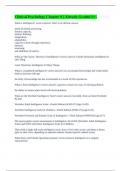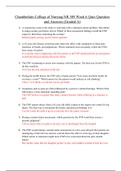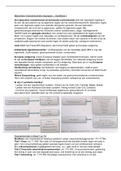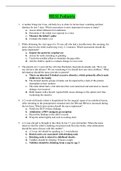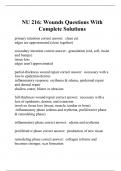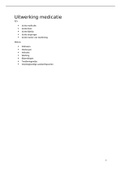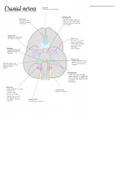Exam (elaborations)
Clinical Psychology Chapter 9 || Already Graded A+.
- Course
- Institution
What is intelligence? correct answers There is no definite answer: speed of mental processing, sensory capacity, abstract thinking, imagination, adaptability, capacity to learn through experience, memory, reasoning, and inhibition of instinct, What are the Classic Theories of ...
[Show more]
